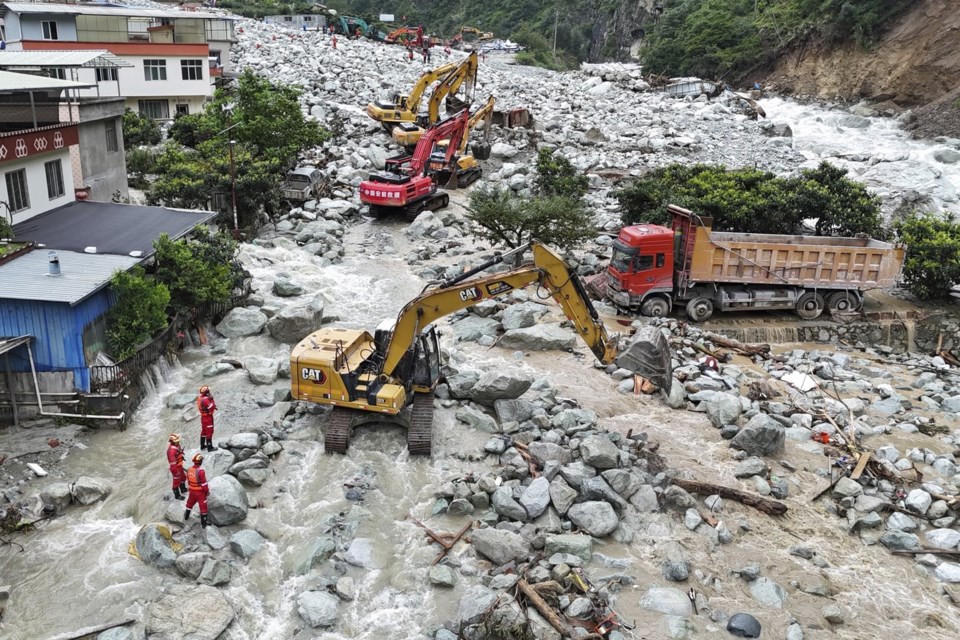BEIJING (AP) — Landslides and flooding have killed more than 150 people around China in the past two months as torrential rainstorms batter the region.
The search was ongoing Monday for victims of a flood and mudslide in a mountainous Tibetan area in Sichuan province that left nine people dead and 18 others unaccounted for, state media said.
The early Saturday morning disaster destroyed homes and killed at least seven people in the village of Ridi, state broadcaster CCTV said in an online report. Two more people died after a nearby bridge between two tunnels collapsed and four vehicles plummeted.
China is in the middle of its peak flood season, which runs from mid-July to mid-August, and Chinese policymakers have repeatedly warned that the government needs to step up disaster preparations as severe weather becomes more common.
An annual government report on climate said last month that historical data shows the frequency of both has risen in China, according to state broadcaster CCTV.
A heat warning was in effect Monday in parts of eastern China, where temperatures were expected to top 40 degrees Celsius (104 Fahrenheit) in several cities including Nanjing, and 37 C (98 F) in nearby Shanghai on the coast.
There have been a series of deadly rainstorms since June.
Days of intense rain from the aftermath of Typhoon Gaemi, which weakened to a tropical storm after making landfall in China about 10 days ago, in Hunan province and left 35 others missing last week.
Authorities said Friday that in July that knocked out a section of a bridge in Shaanxi province in the middle of the night had risen to 38 people, with another 24 still missing. At least 25 cars fell into a raging river that washed some of them far downstream.
In mid-June, from flooding and mudslides after extremely heavy rain in Guangzhou province. in neighboring Fujian province.
Intense rains have also elsewhere in Asia this summer, including that killed more than 200 people in south India last week.
The remnants of Typhoon Gaemi also drenched northeastern China , overflowing the Yalu River that divides them and inundating cities, towns and farmland.
The Associated Press




